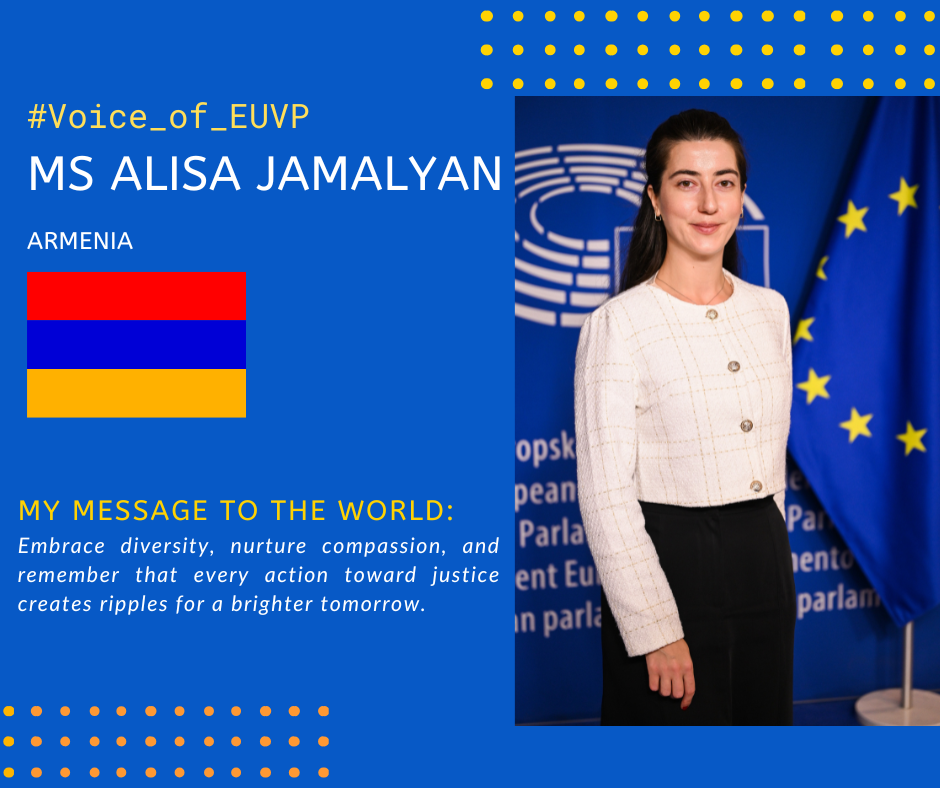Empowering Marginalized Communities in Armenia
I am a human rights advocate focusing on supporting marginalized communities, including Yezidi national minorities in Armenia and Iraq.
What I enjoy most about my work is amplifying voices that are often unheard, and witnessing the positive changes advocacy can bring to people’s lives. Advocacy is a powerful tool for reclaiming agency and building resilience, especially for Yezidi women who have endured unimaginable hardships. Many Yezidi women carry deep cultural and historical trauma, yet their courage and resilience is extraordinary. Through my work with them, I see first-hand many of the barriers they face—not just in accessing education and employment, but also in having their voices heard within broader social and political landscapes. Supporting Yezidi women means creating opportunities for them to share their stories, advocate for their rights, and help them take on leadership roles. Every step forward, no matter how small, represents progress towards a future where they can live with dignity, free from oppression and discrimination. Witnessing their empowerment is truly inspiring and drives my commitment to my work.
Advocacy is a powerful tool for reclaiming agency and building resilience, especially for Yezidi women who have endured unimaginable hardships. Many Yezidi women carry deep cultural and historical trauma, yet their courage and resilience is extraordinary. Through my work with them, I see first-hand many of the barriers they face—not just in accessing education and employment, but also in having their voices heard within broader social and political landscapes. Supporting Yezidi women means creating opportunities for them to share their stories, advocate for their rights, and help them take on leadership roles. Every step forward, no matter how small, represents progress towards a future where they can live with dignity, free from oppression and discrimination. Witnessing their empowerment is truly inspiring and drives my commitment to my work.
What people may not know about my country is that Armenians make up 97% of Armenia’s population, while the remaining percentage is made up of different ethnic minorities, including Yazidis, Russians, Ukrainians, Kurds, and others.
If I could meet anyone from the past, present or future, it would be Eleanor Roosevelt, to learn more about her work on human rights and gain insight from her wisdom. Meeting her would be an invaluable opportunity to understand her vision for human dignity and courage, especially in the face of conflicts and opposition. I would love to discuss how she planned to maintain human rights principles and hope that her insights could help in the continued struggle for social justice today.
The world would be a better place if everyone could feel safe, accepted, and empowered as they are without fear of discrimination. I believe that a world where everyone is respected, regardless of their background or beliefs, would foster limitless creativity, collaboration, and understanding. By fostering inclusive environments and embracing diversity, we could break down barriers that divide us, replacing them with connections that unite. Together, we can build communities where everyone has a voice and the chance to thrive, ultimately creating a more compassionate world.
My favorite saying used in my country is “Աջով տուր, որ ձախով վերցնես” (Ajov tur, vor dzakhov vertsnes), which translates to “Give with your right hand so you may receive with your left.” It’s a reminder that kindness and generosity often come back to us in unexpected ways.
My message to the world: Embrace diversity, nurture compassion, and remember that every action toward justice creates ripples for a brighter tomorrow.
